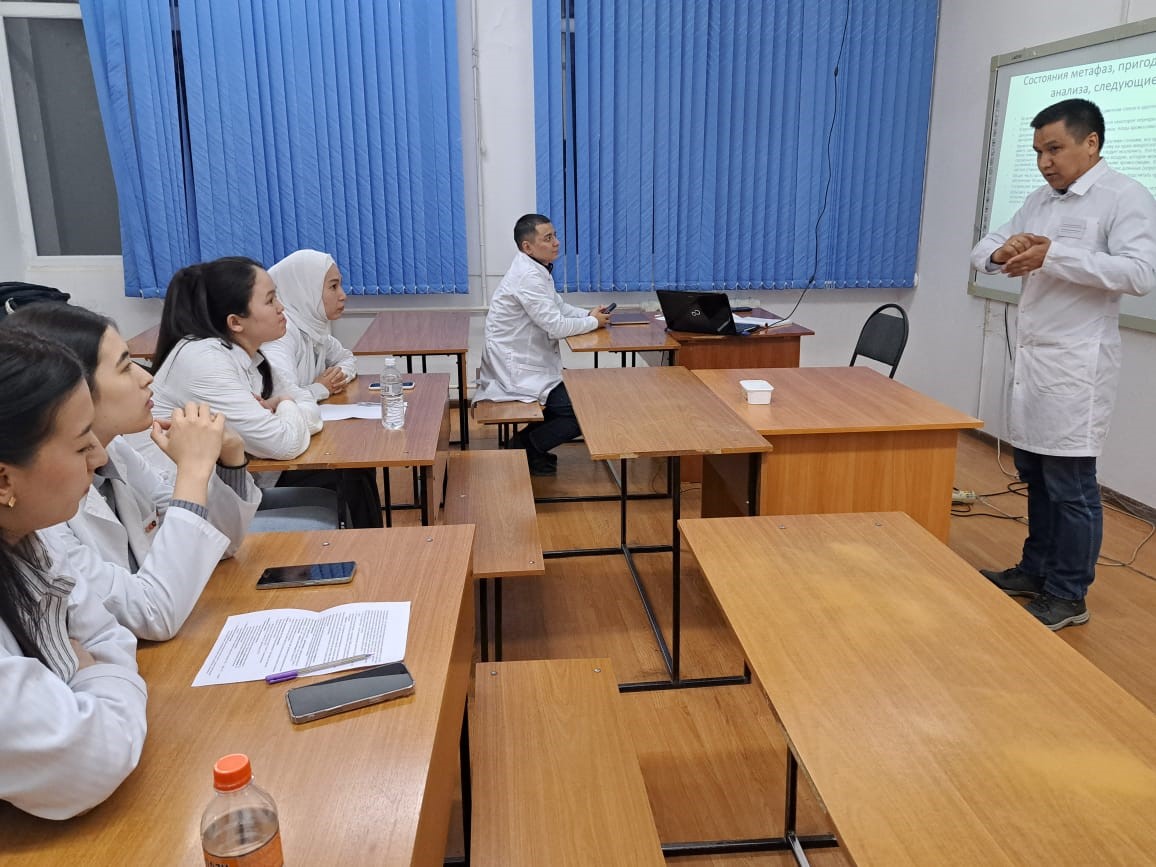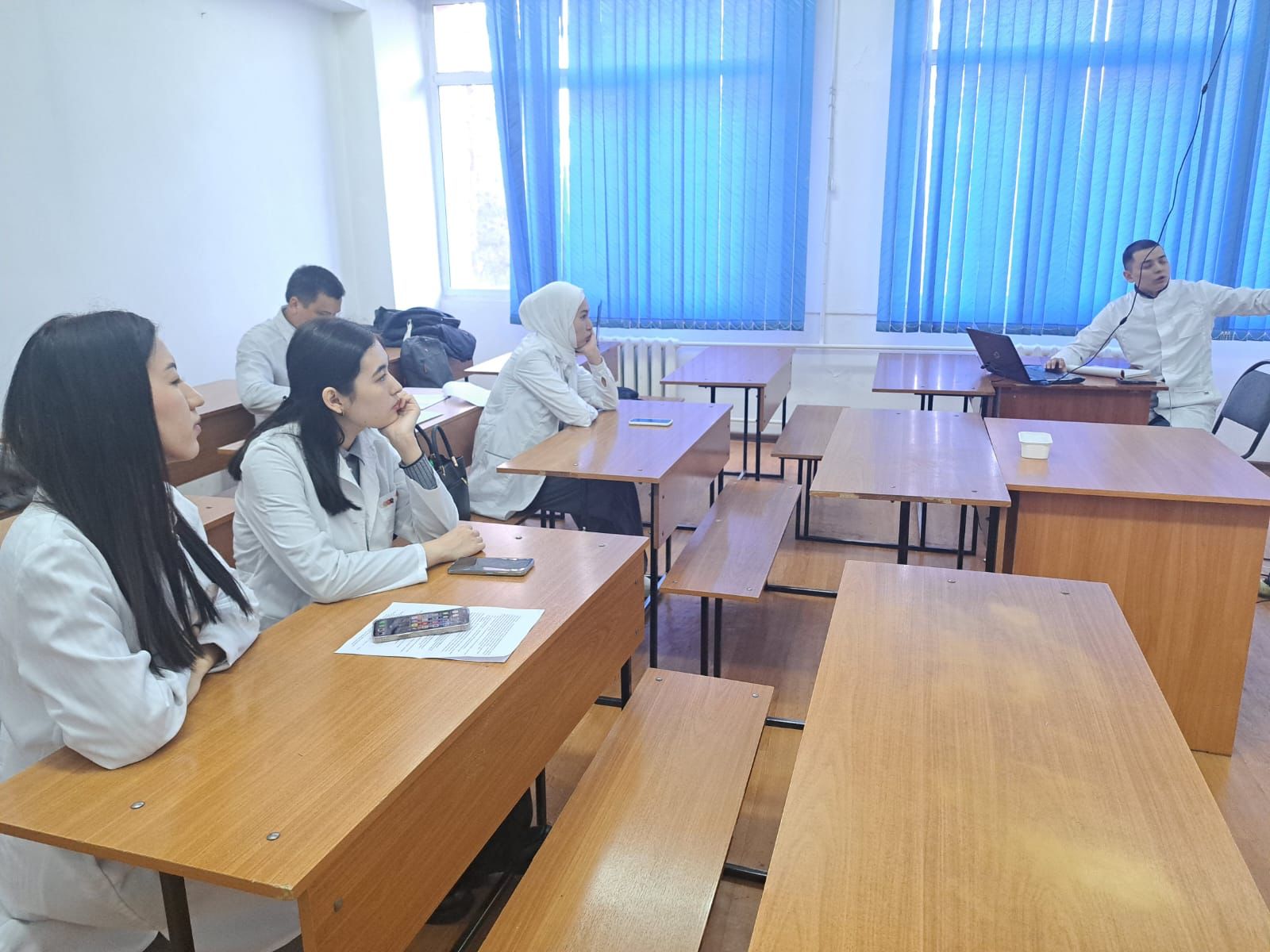Solving the Hunger Problem Through the Use of Vectors in Genetic Engineering

The event was organized by first-year doctoral students in the Genetics program, Melisbek Aibarys and Abaildayev Arman, from the Department of Molecular Biology and Genetics. Scientific consultant, Candidate of Biological Sciences, Associate Professor Amirova A. K.
Hunger is a complex global socio-economic and biotechnological issue. The second goal of the UN Sustainable Development Goals is aimed at ensuring food security and eliminating hunger. The use of genetic engineering methods, including vectors, contributes to the sustainable development of agriculture, increasing productivity, and strengthening food security.
To discuss the role and future of genetic engineering in agriculture, a roundtable discussion was organized within the framework of scientific and political perspectives. This event examined the ecological safety, economic efficiency, and ethical aspects of genetically modified (GM) products. Additionally, the legal regulation of these technologies at national and international levels was discussed.
During the discussion, participants' opinions were divided. One side highly appreciated the role of genetic engineering in combating hunger and emphasized its advantages. They noted that GM crops increase yields and help stabilize agriculture. Supporters argued that genetically modified products are crucial for humanity's future and proved that they are environmentally friendly and economically efficient. The use of vectors allows for increased agricultural productivity, improved food quality, the preservation of ecological stability, and adaptation to climate change. They substantiated their arguments with examples of genetically modified products used in global practice: Bt corn and Bt cotton – crops with high resistance to pests due to natural defense mechanisms. "Golden Rice" – an innovative product designed to prevent vitamin A deficiency by enhancing β-carotene synthesis. Nitrogen-fixing crops – a biotechnological solution that helps maintain natural soil fertility and reduce the use of chemical fertilizers. Drought- and salt-resistant plants – contribute to stabilizing agricultural production in the face of climate change.
However, opponents of this technology emphasized the need for a more in-depth study of its long-term effects. They raised concerns about the potential risks and ethical issues of genetic engineering, warning that its impact on ecosystems and human health has not been fully studied. Additionally, the socio-economic consequences of producing GM products were discussed. The debate highlighted the following potential risks and ethical issues of genetic engineering: Biological risks – the potential harm of genetically modified organisms (GMOs) to natural ecosystems. The crossbreeding of GM crops with natural plants may reduce biodiversity. Health effects – the long-term consequences of consuming GMOs have not been sufficiently studied. Some studies suggest that consuming GMOs may cause allergic reactions and digestive system disorders. Agro-industrial monopolies – the control of genetic engineering by large agrochemical corporations forces farmers to buy patented seeds, which may lead to economic dependence for small farms and increased social inequality. Ethical and cultural aspects – in some societies, there is moral and religious opposition to genetically modified products.
Vectors used in genetic engineering can provide an innovative breakthrough in agriculture and play a crucial role in addressing hunger. These technologies not only increase productivity but also help reduce environmental harm and improve public health. However, their biological safety and ethical aspects must be thoroughly studied and subjected to strict scientific and legal oversight. Effectively utilizing the potential of genetic engineering offers a significant opportunity to eliminate hunger and ensure food security.



